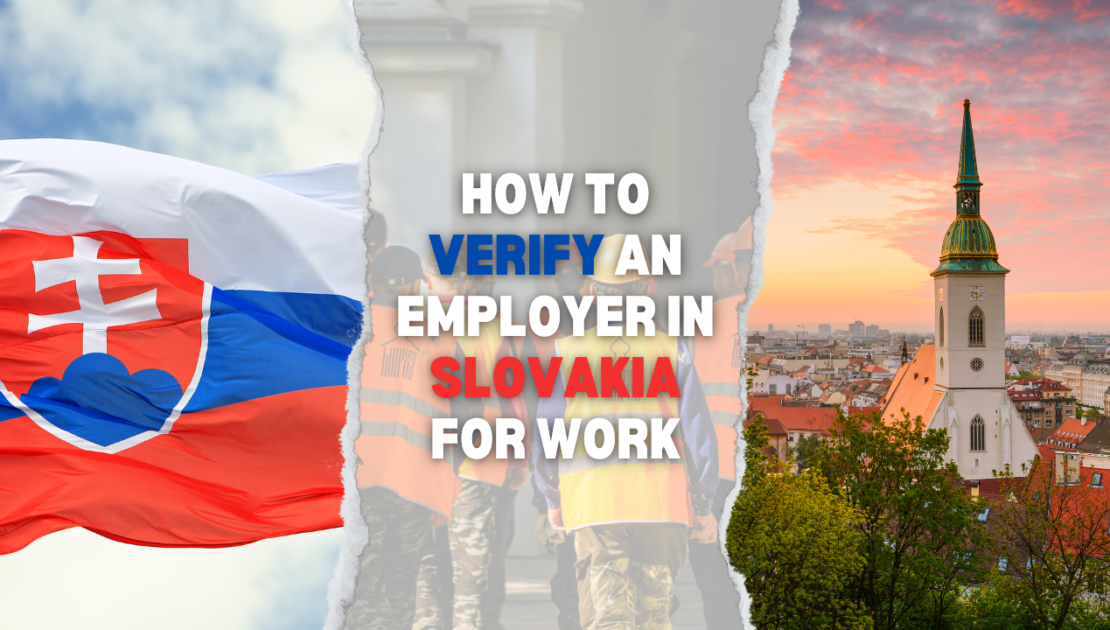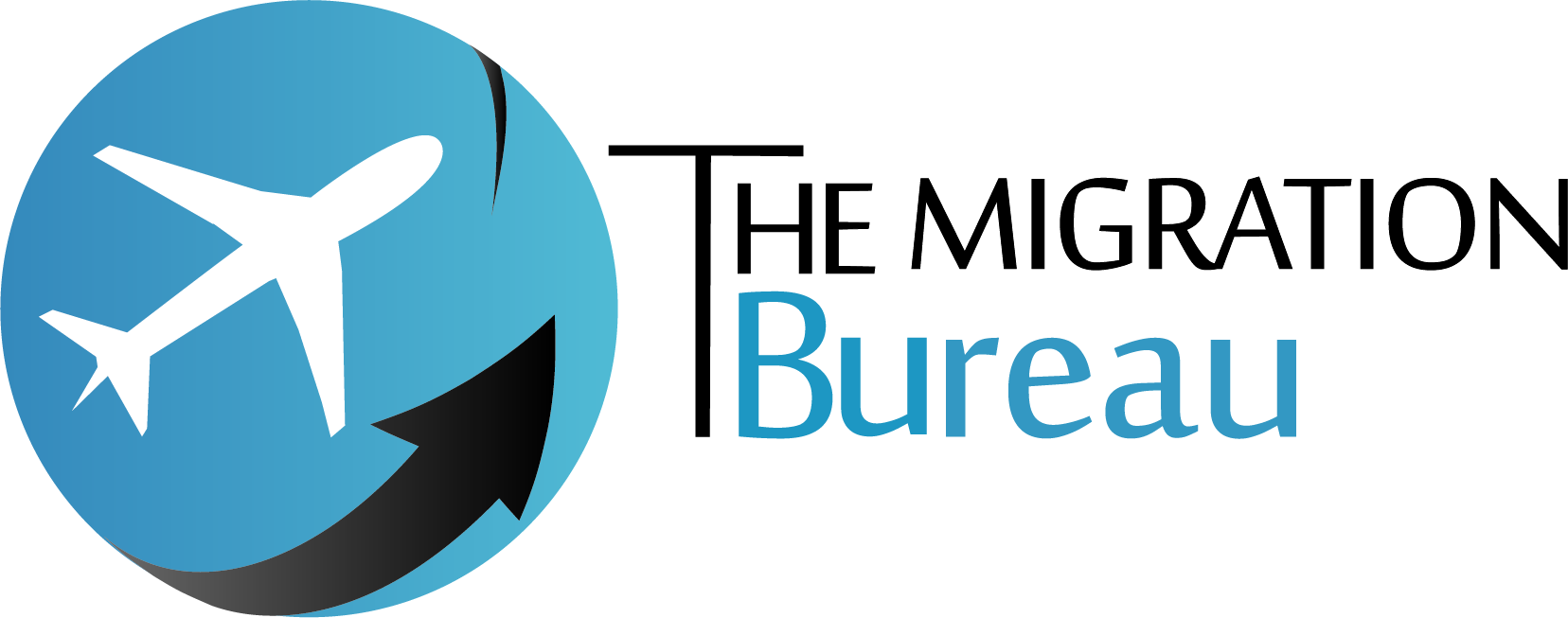- 9 April 2025
- Admin
- No Comments

How to Verify an Employer in Slovakia for Work in 2025
If you’re planning to work in Slovakia—whether you’re coming from a non-EU country or relocating from another EU member state—verifying your future employer is a vital step in the process. It helps ensure that you’re entering into a legal, secure, and fair employment arrangement. This not only protects you from potential scams or illegal job offers but also safeguards your rights as a worker.
This guide outlines the key steps you should follow to verify a Slovak employer, from checking official company registration to ensuring that the job offer aligns with Slovak labor laws. You’ll gain practical insights into how to identify a legitimate employer, what information to look for in public databases, and how to confirm that the company meets all legal obligations under Slovak and EU regulations.
Taking the time to verify your employer can save you from serious complications down the line. With the right approach and the right resources, you can move forward confidently, knowing that your job opportunity in Slovakia is trustworthy and fully compliant with legal standards.
Let’s explore the process in detail to help you make informed and safe employment decisions.
1.Why Verifying Your Employer in Slovakia is Essential
Before diving into the detailed steps of verifying a potential employer in Slovakia, it’s important to understand why this process is so critical—especially for foreign workers.
First and most importantly, verifying your employer helps confirm that you’re dealing with a legitimate and legally registered business entity in Slovakia. This step acts as your first line of defense against fraudulent job offers, human trafficking, or exploitative working conditions. Without proper verification, there’s a real risk of ending up in situations where you’re underpaid, overworked, or even working illegally—often without any legal recourse or protection.
In addition, working for a verified and law-abiding employer ensures that your employee rights are upheld. Slovakia has clear and firm labor regulations that govern employment relationships, covering everything from fair wages and reasonable working hours to safe working conditions and access to social security benefits. An employer who complies with these laws is more likely to provide a professional and secure work environment.
Moreover, as a member of the European Union, Slovakia must adhere to EU-wide standards on labor rights and employment practices. These include non-discriminatory hiring practices, proper documentation for foreign employees, and equal treatment regardless of nationality. However, these protections are only fully available to you if your employer follows the correct legal procedures when hiring international workers.
In short, verifying your employer not only protects you from potential exploitation but also empowers you to start your job in Slovakia with peace of mind, knowing that your rights, safety, and well-being are respected from the very beginning.
2. Step-by-Step Guide to Verifying an Employer in Slovakia
Check Company Information Through Official Slovak Registers
One of the most reliable ways to confirm whether a Slovak company is legitimate is by consulting official business registers maintained by Slovak authorities. These online databases provide comprehensive information about companies operating in Slovakia, including their legal status, ownership structure, and business activity. Here are the key resources you can use:
➡ Obchodný Register (Commercial Register):
This is the primary public database of registered companies in Slovakia. Managed by the Slovak district courts, the Commercial Register contains essential details such as the company’s official name, registration number (IČO), legal form (e.g., s.r.o., a.s.), date of establishment, business address, and current operational status (active, inactive, dissolved). It may also list the names of directors or company representatives.
- Why it’s important: Ensures that the company is officially recognized and allowed to operate under Slovak law.
- Where to access: [Obchodný Register – Official Commercial Register of Slovakia]
➡ FOAF.sk (Friends of a Friend):
This platform compiles and presents data from multiple sources, including the Commercial Register, in a user-friendly format. FOAF.sk goes beyond basic information and offers deeper insights such as annual financial reports, company debts, creditworthiness, and links between business entities. It’s especially helpful if you want to assess the financial health or credibility of a company before signing a contract.
- Why it’s important: Gives a broader picture of a company’s financial background and any red flags.
- Where to access: [FOAF.sk – Business Information Aggregator]
➡ VORSR.sk:
Another useful resource, VORSR.sk, provides detailed company profiles and highlights relationships between businesses, shareholders, and company officials. It covers not only Slovak companies but also connections with firms in the Czech Republic, which can be important if the business operates cross-border.
- Why it’s important: Helps verify the ownership structure and identify potential conflicts of interest or hidden partnerships.
- Where to access: [VORSR.sk – Slovak-Czech Business Registry]
By consulting these registers, you can verify whether the company you’re considering is officially registered, financially stable, and compliant with Slovak business regulations. It’s a crucial first step before entering into any employment agreement.
3. Identify the Ultimate Beneficial Owners (UBOs)
To gain a clear understanding of who truly owns or controls the company you intend to work for, it is important to check the Central Register of Ultimate Beneficial Owners. This register is managed by the Slovak Ministry of Finance and provides information on individuals who have significant control or ownership over a company—often beyond what’s visible through public-facing management roles. Knowing who the real owners are is especially important to avoid unintentionally associating with entities that are under international sanctions or involved in unethical activities.
- How to access: Visit the official website of the Central Register of Ultimate Beneficial Owners provided by the Ministry of Finance.
- Why it matters: It ensures transparency and reduces the risk of working for companies involved in suspicious or unlawful practices.
4. Make a Direct Inquiry
If you’re uncertain about the company’s ownership structure or have found incomplete or unclear information through online databases, don’t hesitate to reach out to the company directly. You have every right to ask for official documentation that verifies their business registration, legal status, or connections to parent companies and subsidiaries. A legitimate employer should be open and willing to provide these details to prospective employees.
- What to request: Business licenses, proof of registration, shareholder information, or partnership agreements.
- Why it matters: Asking for these documents adds a layer of transparency and confirms that the company is willing to operate honestly and lawfully.
5. Conduct Environmental Intelligence Checks
Beyond legal registers and formal documentation, it’s also wise to look at the company’s public reputation. A quick online search can reveal important insights into how the company operates. Look for employee reviews, news articles, or client feedback. Additionally, you can consult external sources such as the Polish Embassy in Slovakia, Polish-Slovak business chambers, or local labor organizations to ask if they have any record or information about the company’s credibility.
- Why it matters: Public perception and third-party references can alert you to potential red flags or confirm the employer’s good standing in the community.
6. Confirm EU VAT and EORI Registration
Companies operating legally within the European Union must be registered for VAT (Value Added Tax) and should also hold an EORI number (Economic Operators Registration and Identification) if they engage in international trade. You can verify these details through the EU’s official VAT and customs registers. This is a quick way to ensure the company is recognized at the European level and is legally permitted to conduct cross-border business.
- How to check: Use the EU VAT Information Exchange System (VIES) and the [EU EORI number validation system].
- Why it matters: Confirms that the company is compliant with EU tax and trade regulations.
Conclusion
Taking the time to verify your potential employer in Slovakia is one of the most important steps you can take before accepting a job offer. It ensures that you are entering into a legal, safe, and fair employment relationship with a company that adheres to Slovak labor laws and respects your rights as a worker.
By carefully following the steps outlined above—checking official Slovak business registers, confirming beneficial ownership, communicating directly with the company, researching its public reputation, and verifying its EU compliance—you can confidently protect yourself from scams, legal issues, or exploitative work conditions.
If you have any doubts at any stage of the process, don’t hesitate to seek guidance from local embassies, labor offices, or legal advisors. Your peace of mind and safety are worth the extra effort.










